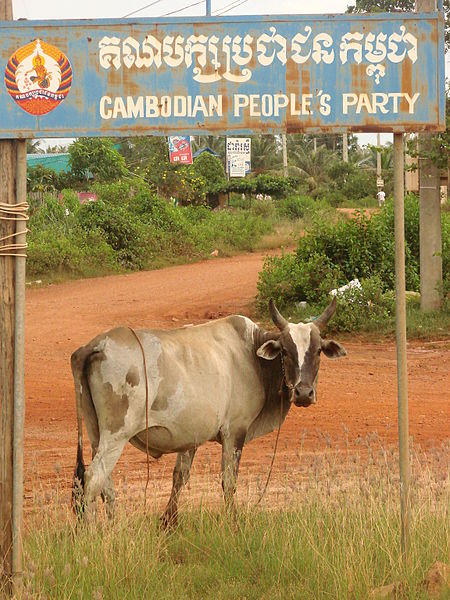Photo courtesy of Adam Jones under a Creative Commons license.
On Sunday, Cambodians took to the polls to vote in the commune council elections held every five years. Like any Cambodian election, this one contained the usual theatrics of vote-buying, ghost ballots, missing names on the voter lists, intimidation, and all sorts of thuggery.
The official results won’t be out for a week or so. But even leaving out the boost from the typical hooliganism, there’s no doubt that the ruling party, the Cambodian People’s Party (CPP), swept away the opposition once again. Since 2007, the CPP’s main opponent, the Sam Rainsy Party (SRP), has run a mere 28 communes out of the 1,633 in the country.
This marks the 15th consecutive year that the CPP is the country’s lone power holder. I’m placing the starting point at Prime Minister Hun Sen’s 1997 coup against his royalist co-prime minister, Norodom Ranarridh.
This grip, though, does not mean that Cambodians are quiescently bowing to Hun Sen and other overlords. On the contrary, as I recently wrote in the Journal of International Peacekeeping, the first United Nations-sponsored elections in 1993 saw a remarkable 90% voter turnout — during which the royalist party, Funcinpec, defeated the CPP when it took nearly half the vote.
For all the UN failures, this open challenge to the CPP was a feat for a country that some scholars had passed off as inherently non-democratic, and incapable of holding “real” elections.
Since then, the CPP has consolidated its power through dominance over the military and police, and has capitalized on schisms in the opposition. Over at Human Rights Watch, Brad Adams points out that, last Friday, Hun Sen even joined the “10,000 Club” of dictators who’ve held onto their posts for 10,000 days.
Sure, this autocrat speaks with the cliché — as Qaddafi and Mubarak did — that he’s brought stability and growth to his country. But bear in mind that Hun Sen uses Pol Pot as his measuring stick. By that standard, Cambodia can’t move any direction except up.
 Facebook
Facebook  Twitter
Twitter  Soundcloud
Soundcloud  Youtube
Youtube  Rss
Rss 